With healthcare products made from native herbal medicines, Sinh Duoc cooperative was honored as a Vietnamese model at the Asia Pacific Cooperative Youth Summit 2018 in the Philippines.
Visiting Sinh Duoc village at the foot of Bai Dinh mountain, Gia Sinh commune, Gia Vien district, Ninh Binh province, we see many native herbal medicine trees and plants by the roadside and gardens in Sinh Duoc village. Thanks to the passion and knowledge of youngsters in Sinh Duoc cooperative, many healthcare products have been created from the valuable herbal medicines.
Legend has it that the Zen Master-Honorary physician Nguyen Minh Khong sought out a cure for King Ly Than Tong. In the Bai Dinh mountainous area, he found many kinds of medicines that grow naturally throughout the area. It was named Sinh Duoc, meaning the place where medicinal plants live. In the process of practicing and learning about medicinal plants here, he conveyed the experience of using herbs and valuable remedies to the people of Sinh Duoc village.
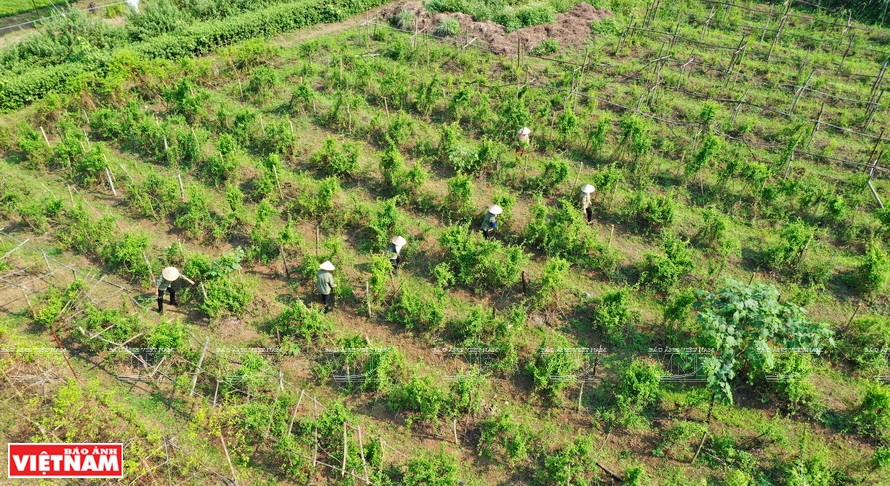
A 6ha orchard growing valuable herbal medicine varieties
on Hoang Thanh mountain, Gia Sinh commune, Gia Vien district, Ninh Binh province.
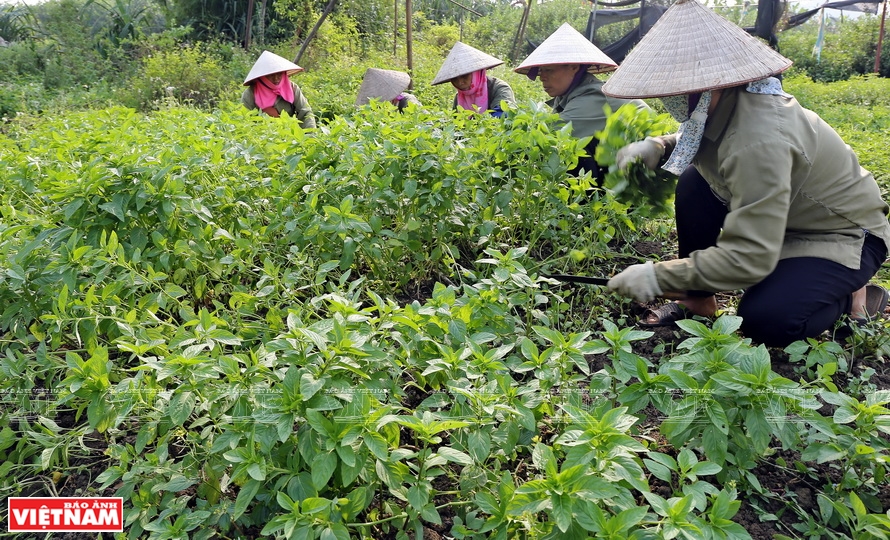
Harvesting peppermint to make herbal soap.
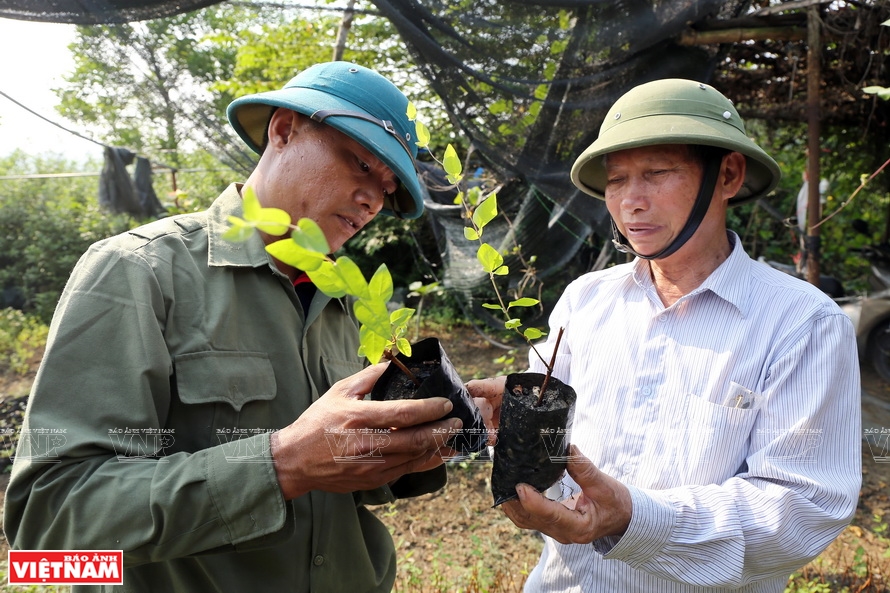
Founder of Sinh Duoc, Vu Phuong talks about new varieties growing at Sinh Duoc.
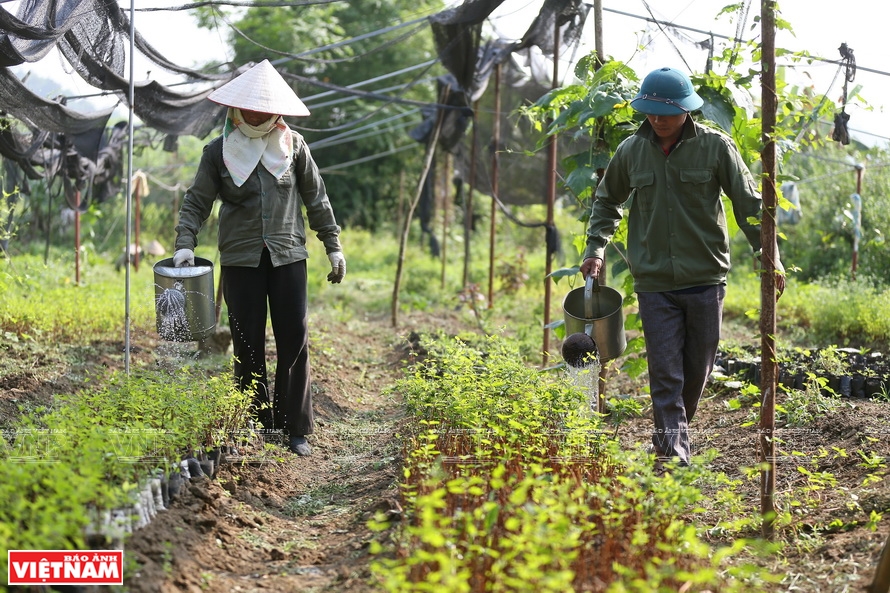
Tendering herbal seedlings at the material area.
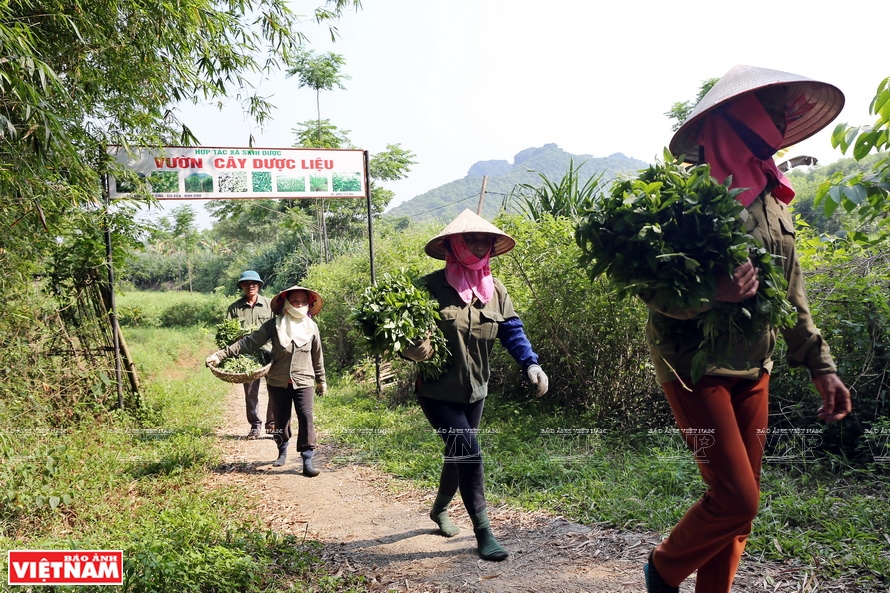
Harvesting herbal medicine.
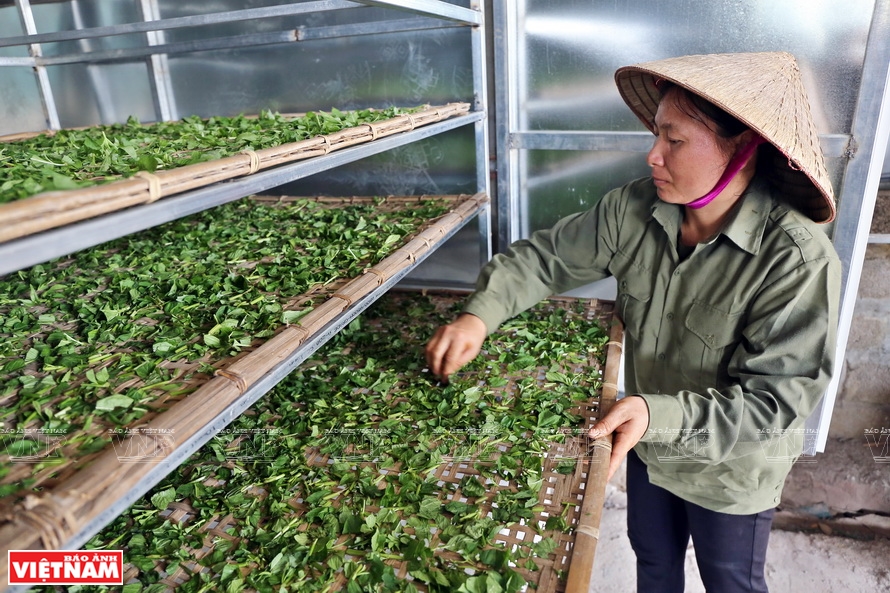
Drying herbal medicine.
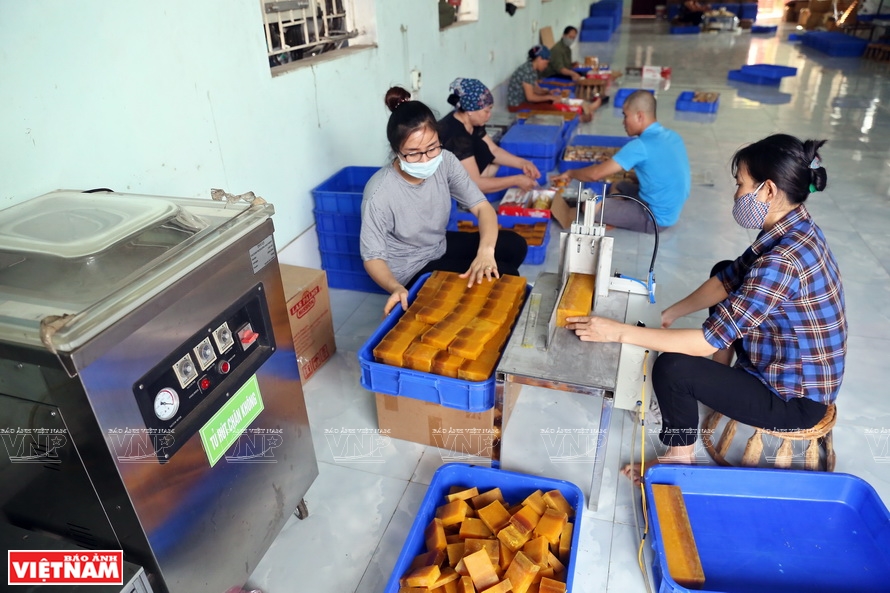
Cutting herbal soap.
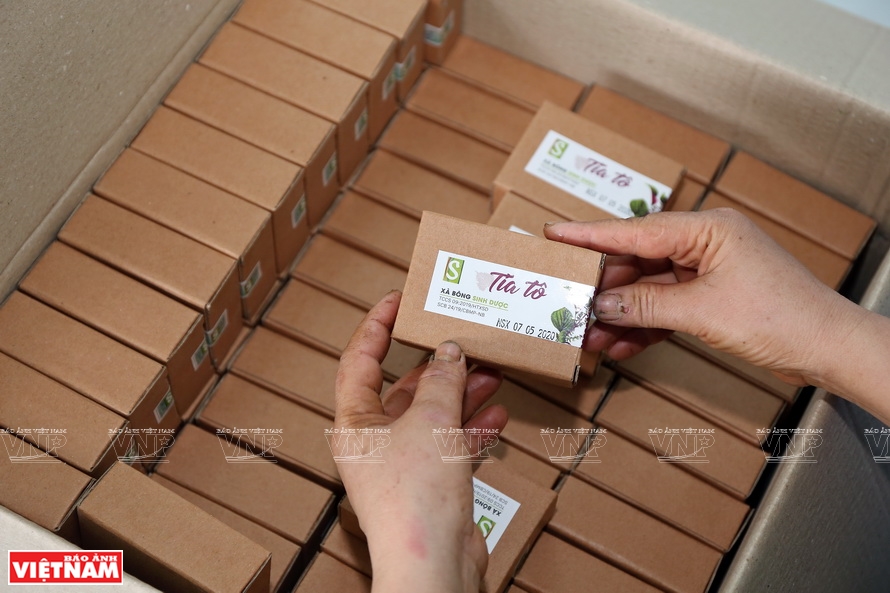
Packing and labeling herbal soap.
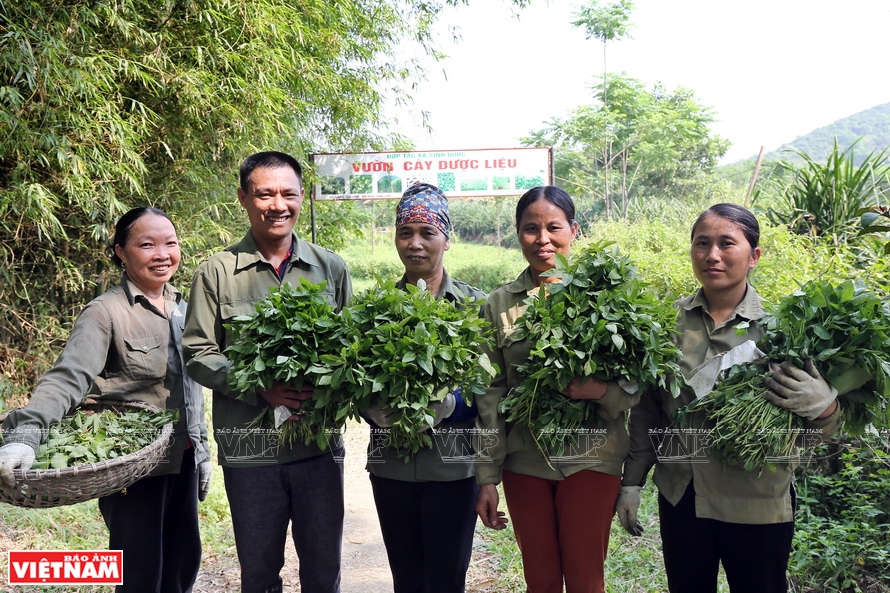
Sinh Duoc cooperative provides jobs to many locals. |
Sinh Duoc cooperative was established in 2014 with the aim of using herbs to produce healthcare products for the community by Mr. Phuong, a member of Gia Sinh commune. He said that the cooperative was established with 7 members and 200 million dong, producing the two main products; herbal foot bath salt and herbal shampoo. After graduating from Hanoi University of Science and Technology, Vu Trung Duc went home and developed Sinh Duoc cooperative into a complex of herbal products and ecotourism.
The cooperative now has two workshops with about 40 employees. It has a 6ha field for growing herbal medicines at the foot of the mountain and a 5ha ecotourism area. This is the only cooperative in Ninh Binh which has applied e-bill selling from 2017 and glued the QR code for 100% herbal soap products. All traditional products of Sinh Duoc such as soap, sterilized liquids, salt, oil, shampoo and shower gel are made from native herbs, including honeysuckle, balloon cherries, Indian camphorweed, lemongrass and shiso.
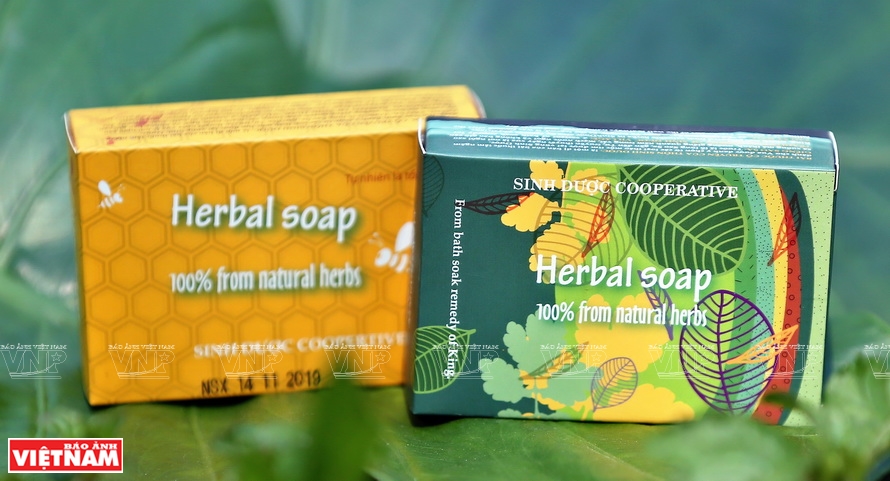
An Thai tea made from Japanese honeysuckle.
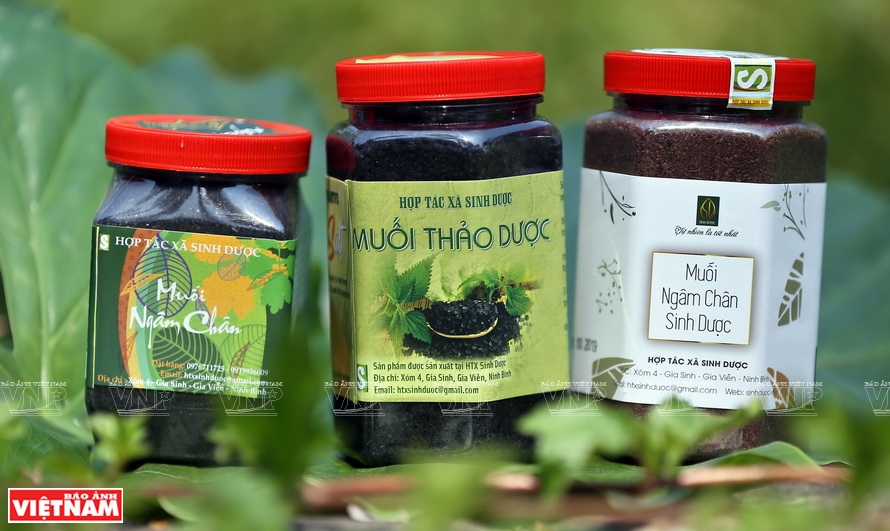
Herbal salt, a product favored by customers.
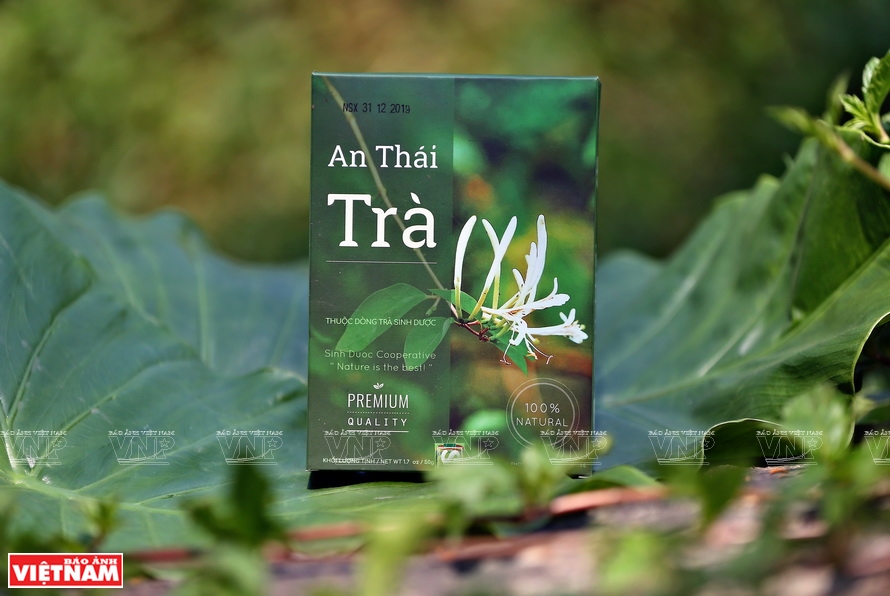
An Thai tea made from Japanese honeysuckle.
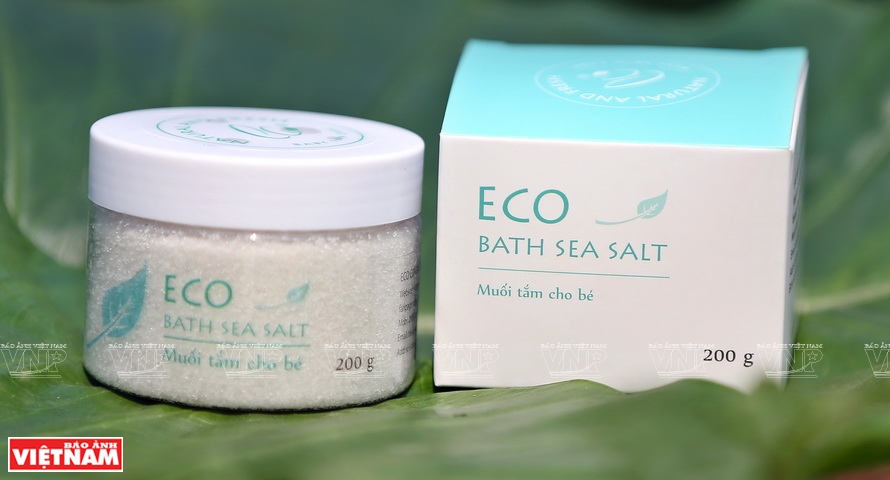
Bath sea salt for children.

Natural oil.
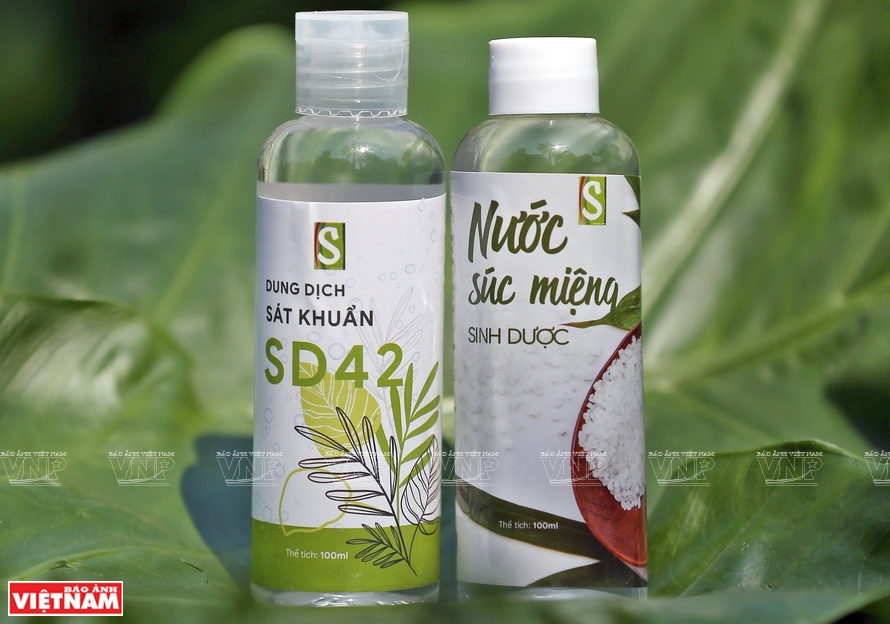
Mouthwash made from betel leaves.
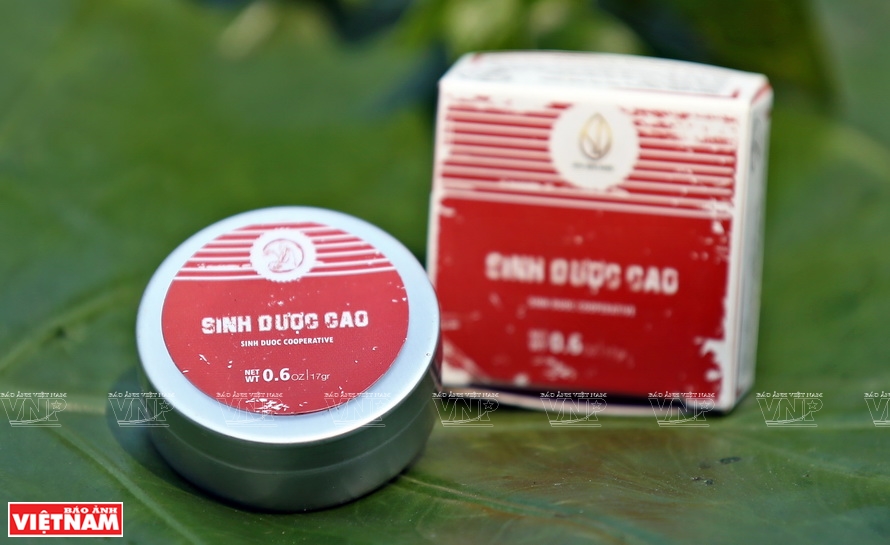
Sinh Duoc products.
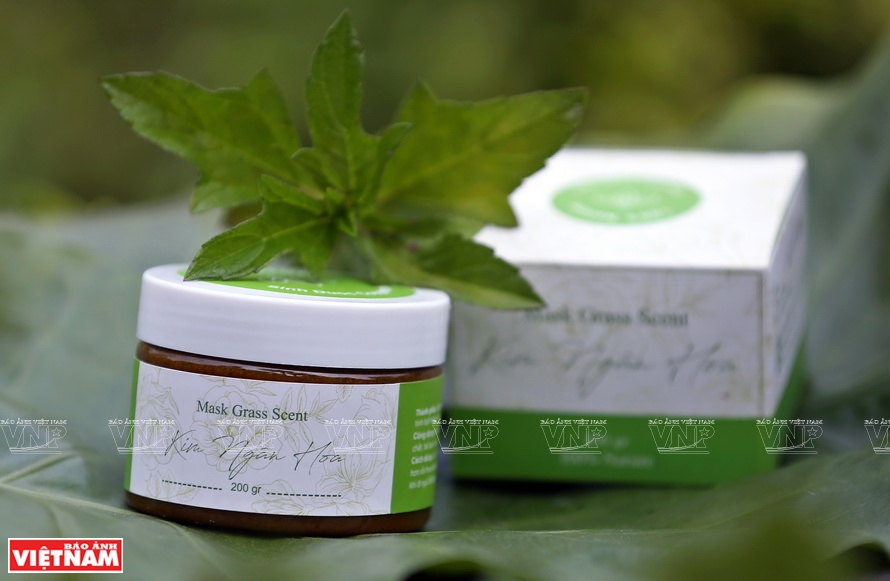
Kim Ngan Hoa cosmetics.
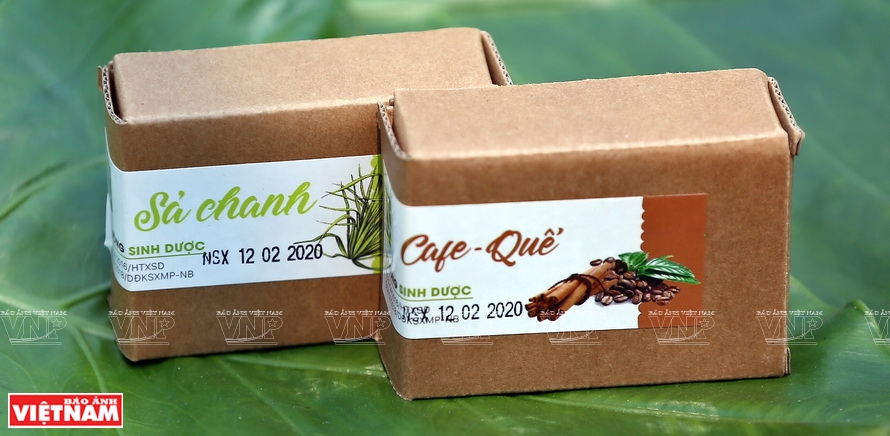 Other Sinh Duoc products. Other Sinh Duoc products. |
Beside native herbs, Sinh Duoc cooperative grows many varieties of betel nuts and clove basil. Every day, Sinh Duoc members harvest and process herbal medicines. Through many stages, Sinh Duoc produces 16 products from the herbs with diverse perfumes of honey, bitter melon, honey locust and lemongrass. The income of Sinh Duoc from the products reaches about 1 billion dong/month and it is increasing day by day.
CEO of Sinh Duoc cooperative Vu Trung Duc said that the cooperative takes the local advantages of employees and herbal medicines to build a brand name of natural herbs. Each Sinh Duoc member acts as a tour guide in their garden. The model of Sinh Duoc cooperative is an example to inspire many new cooperatives in Vietnam, including tourism, brocade, herbal medicines and tourism. Two herbal medicine cooperatives operated by ethnic people in Ninh Binh, Lao Cai and Quang Tri as well as five cooperatives of producing herbal medicine in Ninh Binh, Nghe Anm Quang Binh, Ha Tinh and Quang Tri provinces. Sinh Duoc plans to complete Sinh Duoc ecosystem, a native, herbal brand name with the combination of tourism and producing herbal medicine.
Story: Bich Van - Photos: Cong Dat